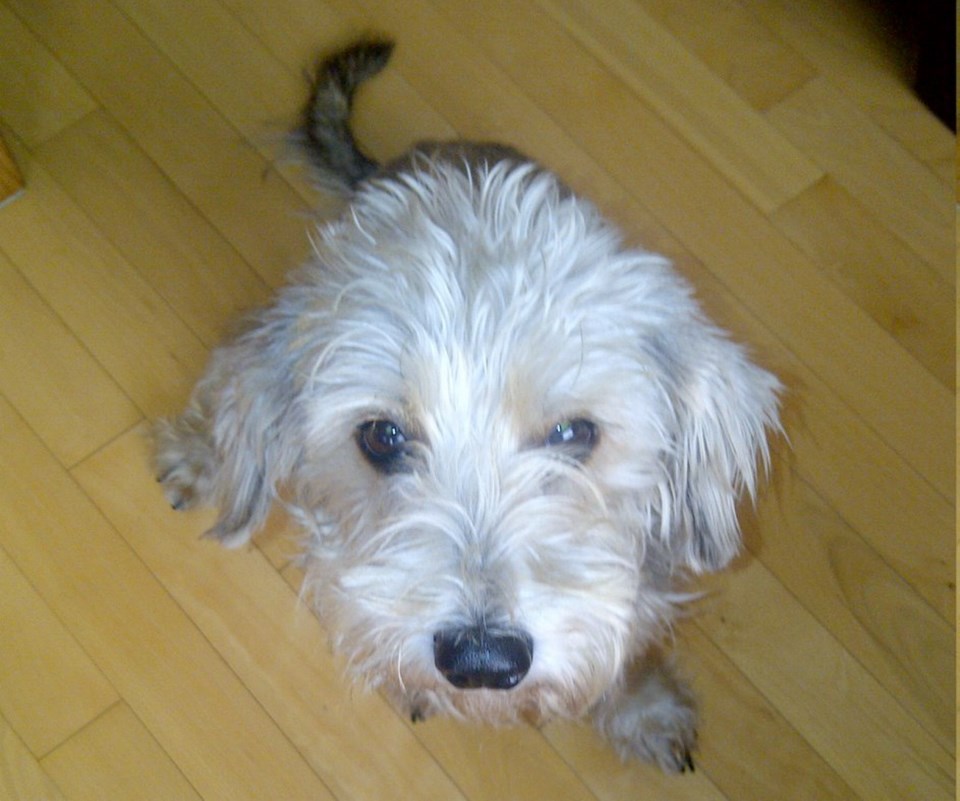I have a new woman in my life, a cute little blond plucked from the streets of Peru.
Didn’t know I would be bringing her home when I booked my trip to South America, where my daughter was studying. Then came the Father’s Day phone call: “How much luggage are you bringing? I found a dog.”
“You know we have dogs here in Canada, right?” I said.
“Not this dog,” she replied.
Rupa Rupa — named for the small-town restaurant outside which she was discovered — is a terrier-dustmop cross. Word is she had belonged to an American who abandoned her after falling ill in the Amazon.
Rupa — that’s the short form — trailed some Canadian girls from the restaurant to their hostel, following them doggedly (as it were) even after getting hit by a car en route. Every time they tried to lock her out, she would sneak back in under the fence, only to be attacked by the hostel’s three resident mutts. That’s where my daughter found her, soaking wet from the rain, shaking with fear but refusing to leave. After being towelled off, Rupa spent that first evening under the table at a noisy karaoke bar. Dog and daughter have been inseparable since.
Except it’s hard to drag a pet around South America, which is why my wife and I will be holding on to Rupa for the next few months until junior gets home.
We were uncertain about this. It has been nine years since we lost our last dog, a golden retriever named Spot. Golden retrievers are the Tom Hanks of the pet world — friendly, intelligent, likable. Golden retrievers do not guard grow ops, patrol junk yards or attempt sexual relations with visiting clergy or slow-moving pedestrians. We have been dogless since Spot died, figuring him to be irreplaceable.
Certainly there was no intention to have a quasi-rat move in. Never imagined sharing space with a calf-high critter who appeared more cat than canine (I don’t dislike cats, just don’t see their point). Preferable are big, shambling dogs — the kind who take the starch right out of you when they come in for a crotch check, or whom you can blame when someone (not naming any names) breaks wind — as long as they’re good-natured. (If there aren’t vicious breeds, there are at least breeds favoured by vicious owners who want a mean dog; these are the same people who give their children outlaw names.)
But Rupa is a heartbreaker, a sweet-natured open book, desperate for affection, as timid as she is brave (courage isn’t about the absence of fear, but rather the will to overcome it). We have yet to hear her bark, so don’t know if she speaks Spanish, English or the Quechua tongue of the Andes. I am smitten.
Now, I know I am not the first traveller to be swept off his feet by a damsel in distress. Indeed, Victoria suddenly seems awash in so-called rescue dogs (a rather pretentious term for strays) fetched from far-off lands. The government isn’t keeping statistics, but it’s no longer rare to find pets from Phoenix or Phuket.
“It is happening more and more,” says Carol Broad of the Victoria Adoptables non-profit group. She sees plenty of people bringing in dogs from places such as Mexico, California and Taiwan. Put it down to increased international travel, all those Canadians winging down to Puerto Vallarta for some February sun and falling in love with the big-eyed, skinny-ribbed pooch on the beach. A rabies shot, a veterinarian’s exam and they’re into the country with an ease that makes would-be human immigrants green with envy.
Not everyone is happy with the influx, arguing there are plenty of homeless dogs here that should be housed first.
“It can be a controversial subject,” says Broad, whose organization deals mostly with dogs from up-Island communities. Not that she draws a distinction: “The dogs over the border have a heartbeat, too.”
Besides, we’re talking about personal relationships here, not interchangeable commodities — true love, not a mail-order bride. My daughter didn’t just find a dog, she found Rupa. Their bond is obvious. I think Rupa likes me, too — though she might change her mind tomorrow when we take her to get spayed. Welcome to Canada. Welcome home.



